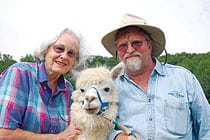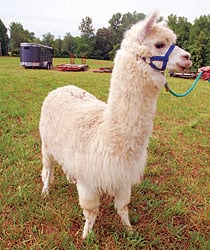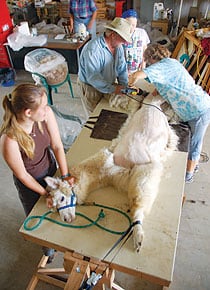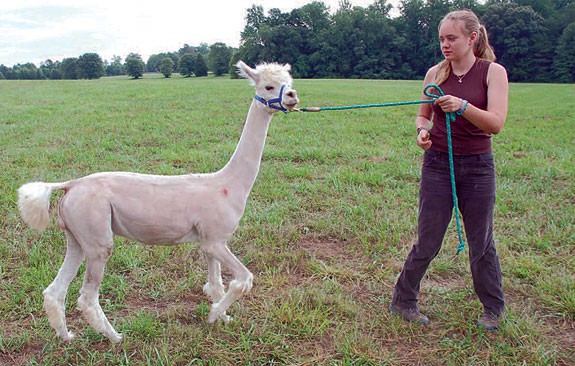Dan Lawing wanted to return to his roots.

After a long career as an engineer in the textile manufacturing world and current full-time position as director of facilities for York Place children’s home, Lawing wanted to spend his free time getting back to his childhood activities growing up on a farm near Marion, N.C. Together with his wife, Linda Smith, they began looking for animals to raise three years ago.
They didn’t have to look long or far. After Linda saw a newspaper article about alpacas—a South American camelid that resembles a small llama— the two visited a farm, Awesome Alpacas in Monroe, N.C., planning to spend an hour looking around. Some six hours later, the hook was set.

“We both just fell in love with them,” says Linda, who has been a York Electric Cooperative member for more than 40 years. “They were just darling, just wonderful. We got home and that’s all we talked about for a week. We kept making the sounds they make— they hum, you know, when they’re happy and stomp their feet when they’re aggravated.” She notes that alpacas have no upper teeth, hooves or horns.
Dan called back the farmer, Joe Porter, came to terms for the seven remaining bred females for sale, and he and Linda have been in love ever since. Nowadays the couple raise 19 huacaya (pronounced “wah-kay-ya”) alpacas on their Clover farm, breeding the females and selling the fiber prized for its softness and strength to a nearby processor, Echo View, in Weaverville, N.C. They thoroughly enjoy every aspect of the process, from the breeding to shearing to the daily chores that revolve around the lives of the gentle and entertaining creatures.

“Each one is like the best family pet you could have,” Dan says. “They’re pretty low-maintenance animals; you have to trim their toenails every so often, but really, they’re light eaters for their size and their vet costs are pretty low. I even use their waste for fertilizer for my garden, and it’s remarkably effective. We jokingly call it ‘alpaca black gold.'”
For Dan, the decision to raise alpacas is one he hasn’t once regretted.
“We just love watching the fun things they do,” he says. “They’re like children. It’s a rewarding experience every day we get up to be with them.”

By Walter Allread
Field Editor
South Carolina Living